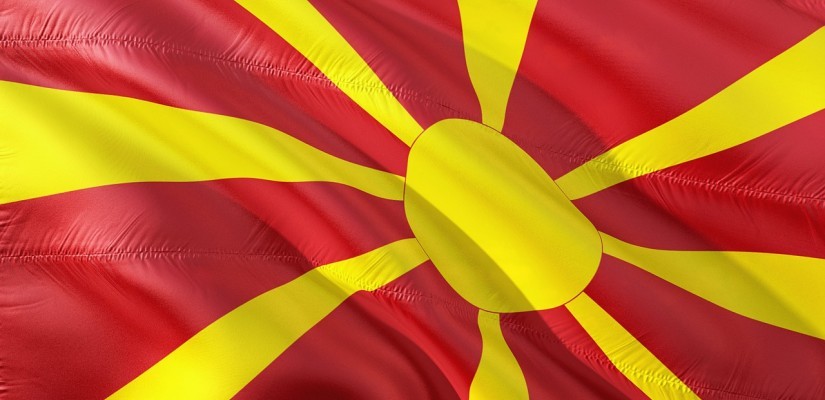On September 30th, 2018, The Republic of Macedonia held a referendum to change the name of this nation to “The Republic of North Macedonia”. While this name change may seem trivial to some, it represents a nationalistic dispute between the Republic of Macedonia and Greece that has prevented Macedonia’s ascension into NATO and the EU.
This September 30th referendum was unsuccessful in reaching the 50 percent threshold needed to endorse the name change. However, of the 36.9% of eligible voters that did show up to vote, 91.4% voted in favor of changing the name. Social Democrats, led by Prime Minister Zoran Zaev had pushed for a referendum that would approve the Prespa Agreement signed with Greece in June on 2018 in which Macedonia agreed to change its name to Northern Macedonia. Previously, Greece has used its veto power to prevent Macedonia from entering both NATO and the EU. Greece’s adamant opposition to their northern neighbor’s use of the name “Republic of Macedonia” is due to the fact that a northern region in Greece shares the name Macedonia. This disagreement over the title of Macedonia has lasted for around 27 years, starting when the Republic of Macedonia was established following the dissolution of Yugoslavia in the early 1990s. A member of the United Nations since April 1993, this nation is referred to by the international body as the Former Yugoslav Republic of Macedonia (FYROM) in order to avoid debate.

While the land known as Macedonia, or Macedon in ancient times, has changed in size and location throughout history, the territory is now primarily divided between Slavic and Greek ethnic lines, presenting the disputed territory we observe today. While supporters of the referendum believe that a change to the name could end put an end to decades of dispute, opposition groups in Greece and Macedonia are determined to prevent such an event from happening. Macedonia’s opposition party, VMRO-DPMNE, and its leader, Hristijan Mickoski, along with Macedonia’s president, Gjorge Ivanov, encouraged their supporters to boycott this September 30th referendum, resulting in the relatively low turnout.
The Social Democratic party in Macedonia is firmly committed to EU and NATO membership. Also in support of the referendum and praising its results as a success are western nations, such as Germany and the United States. The significance of this vote was demonstrated by visits to Skopje from several European dignitaries including German Chancellor Angela Merkel and NATO Secretary General Jens Stoltenberg, who urged voters to support the name change. Supported by Brussels, Berlin, and Washington, Prime Minister Zoran Zaev wants to normalize relations with Greece and achieve EU and NATO entry through the proposed name change. However, in order to do so, he will need to amend the country’s constitution. Just nine seats short of the ⅔ majority required to change the constitution, Social Democrats and their parliamentary coalition hold 71 of the 120 seats. Given the close proximity to the realization of their goal, the Social Democrats may call for early elections in order to get the majority of seats needed. However, new elections would have a substantial impact on Macedonia’s future, Social Democrats may gain enough seats to amend their constitution, or power could transition to the opposition, VMRO-DPMNE.
Most Macedonians support entry into NATO and the EU, but those who boycotted the referendum feel that their nation has every right to be accepted into these international bodies with the name they have already chosen. Furthermore, some Macedonian people are frustrated by the leading coalition’s plan to push for name change regardless of referendum result. Additionally, an acceptance of the name change would also need to be ratified by the Greek parliament, which may also be short of the votes needed for approval, leaving many in Macedonia wondering if their efforts will be in vain.
Also opposed to Macedonia’s entry into NATO and the EU is Russia. Many have warned of Russian interference in the September 30th referendum, including U.S. Defense Secretary James Mattis, given Russia’s long-established opposition to NATO and their history of aiding nationalist political movements in Europe. As of October 2018, four other nations of former Yugoslavia -- Albania, Croatia, Montenegro, and Slovenia -- have already joined NATO. Russia is undoubtedly in firm opposition to another nation from the former communist Yugoslavia joining the ranks this alliance. Yet it is also very likely that western nations have played just as much of an influential role in this referendum as Russia, given the importance of this vote. Leading Western powers are very eager to incorporate this Balkan country into NATO and the EU during this time of increased Russian expansionism.
The battle over this name change may embody yet another piece in the larger ideological contention of east and west, or perhaps may have served as a referendum on Macedonia’s governing body. Either way, the full conclusion of this referendum is still yet to be seen and its full effects are yet to be realized.
